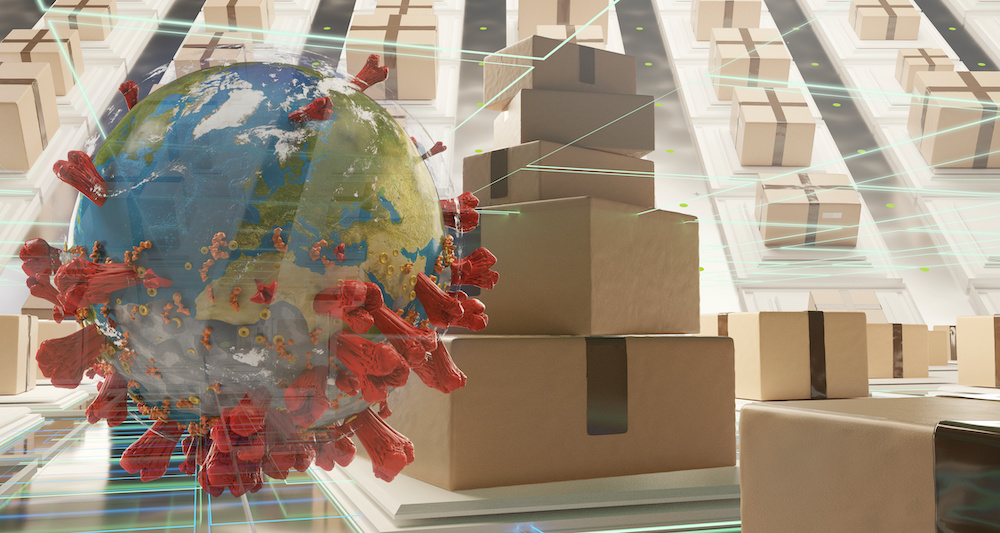Many researchers are currently working on a vaccine against Covid-19, but how is a fair and safe distribution of vaccine doses organised worldwide? Blockchain technology could help.
The whole world is currently waiting for just one piece of news: that researchers have succeeded in developing an effective vaccine against the novel coronavirus. Let’s fast forward the time and assume that such a vaccination already exists: How will it reach people around the world as quickly, fairly and safely as possible?
A challenge for supply chain management
To eradicate Covid-19 worldwide, a vaccine is essential. Equally important, however, is the distribution of the estimated 7 to 19 billion doses of vaccine that will be needed – taking into account the number of people on the planet, a loss rate during transport or storage, and the fact that two doses per person may be required.
Supply chains would therefore have to have enormous capacity to distribute Covid-19 vaccine. Stabilising vaccine supply chains takes years, depending on the region, as demonstrated by decades of vaccination programmes by UNICEF and the Gavi Alliance. Blockchain technology could be used for the first time in the history of pandemic control and ensure a fair distribution of the Covid-19 vaccine.
Fair and tamper-proof
At present, economic and national interests influence who discovers the corona vaccine, who produces it and who finances it. The supply chain for the Covid-19 vaccine, on the other hand, must be one thing above all: Fair and secure. The fact is: fraud and counterfeits, incorrect storage, unclear shipping routes and other problems will not be tolerated when distributing the Covid-19 vaccine. This creates an opportunity for blockchain technology. It enables a transparent, consensus-driven and tamper-proof supply chain.
Blockchain and distributed ledger technology ensures that data integrity is unalterable. In combination with IoT sensors, the technology also enables real-time tracking. This would allow key parameters such as temperature or stock levels to be monitored transparently and reduce the rate of waste.
Existing Blockchain supply chains prove success
The blockchain technology is already successfully used in the supply chain in ports, retail or logistics. Its findings could now be used to establish a global supply chain for Covid-19 vaccines.
One example: the IT group IBM provides retailers with the IBM Food Trust platform based on blockchain. With QR codes on product packaging, the entire route of food products such as fresh fish products or fruit and vegetables becomes transparent – from the manufacturer to the supermarket customer.
In addition to transparency, the great advantage of blockchain is the verification of products: The luxury goods group LVMH, together with the technology companies Consensys and Microsoft, has developed a platform with which luxury goods can be checked for authenticity.
In the case of coronavirus, blockchain technology could help to build a global consortium of vaccine researchers, pharmaceutical companies, manufacturers, distributors, healthcare professionals and governments. In addition, a blockchain-based platform offers many control and monitoring possibilities. In the event of supply shortages, responsible persons could react quickly and thus save a lot of money.
Conclusion: Trust and transparency are the quintessence in the distribution of Covid-19 vaccination. This will reduce vaccine wastage, eliminate stockpiles and ensure a truly equitable distribution of the vaccine to the entire population.
This article was first published on Blockruption: https://blockruption.com/2020/08/coronavirus-how-blockchain-could-fairly-distribute-the-covid-19-vaccine/?lang=en
 English
English

